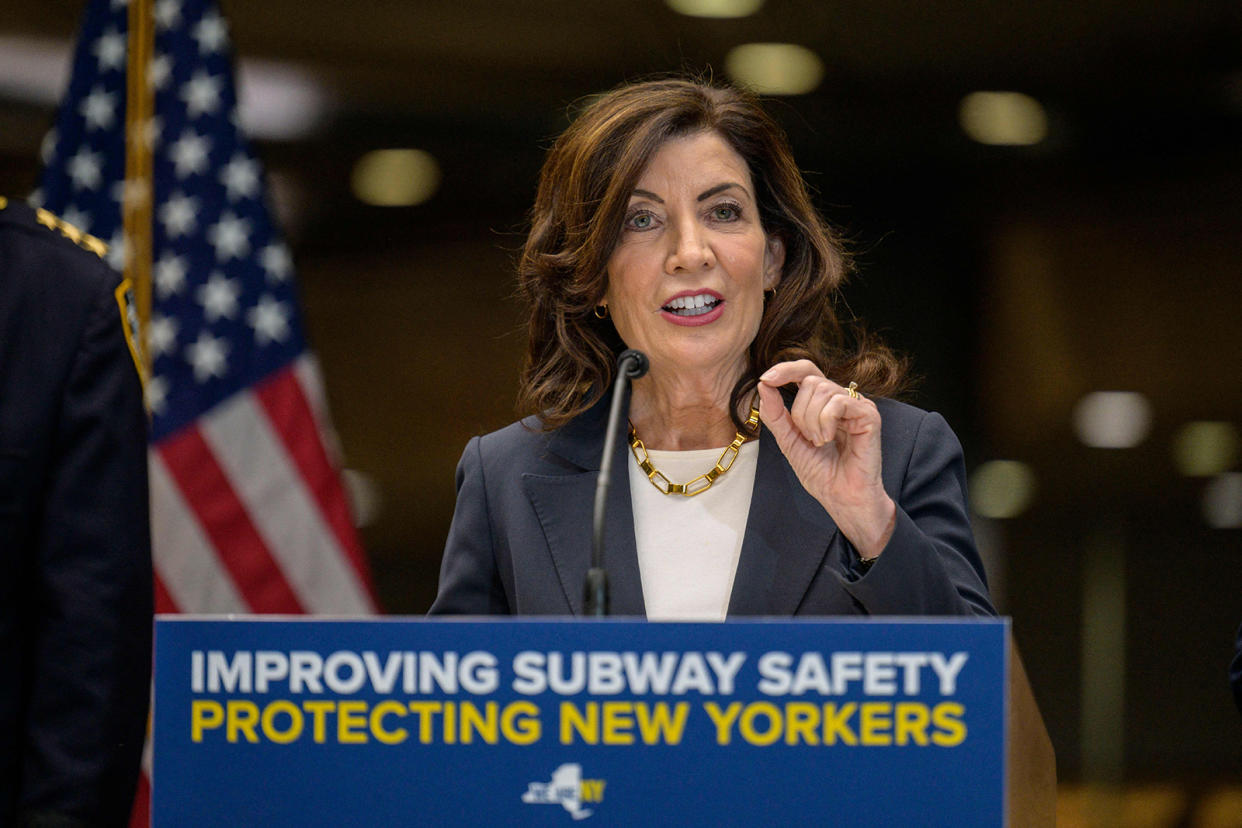Gov. Hochul signs restrictions on teens’ social media feeds into law

NEW YORK — Gov. Kathy Hochul signed legislation Thursday with the goal of reducing the harmful effects of social media on New York’s children.
The two bills take aim at allegedly “addictive” algorithmic feeds designed to keep kids glued to their phones and at data privacy concerns. Without parental consent, platforms would default to chronological posts and pause notifications overnight, under the legislation.
“We can protect our kids,” Hochul said at a news conference at the United Federation of Teachers’ headquarters. “We can tell the companies, you are not allowed to do this, you don’t have a right to do this, that parents should have say over the children’s lives and their health.”
Experts say the frequency of mental health diagnoses and symptoms increase with the rates of social media use.
In New York City, 90% of teens who use the platforms every day reported feelings of general worry and 56% said they’ve had at least some depressive symptoms, according to a Health Department report released earlier that afternoon.
About 78% of parents believe the government should restrict the type of access platforms give teens, health officials found.
New York Attorney General Letitia James’ office is tasked with writing regulations before the new algorithmic-feed restrictions can officially go into effect.
James will determine how users can verify their age and parental consent. Critics warn that can be tricky without creating new concerns for minors, and the attorney general told reporters the process will take “as long as it takes to make sure we get it right.”
In anticipation of the Hochul’s signing of the legislation, tech companies opposing the law have been mulling litigation to stop the bills in their tracks. Those who wrote the bills believe they’re narrowly tailored enough to survive legal challenges.
“The bill dictates what speech platforms can and cannot show users, so it’s going to face a constitutional minefield,” said Adam Kovacevich, CEO of the tech policy coalition Chamber of Progress. “It’s a well-intentioned effort, but it’s aimed at the wrong target.”

 Yahoo News
Yahoo News 
